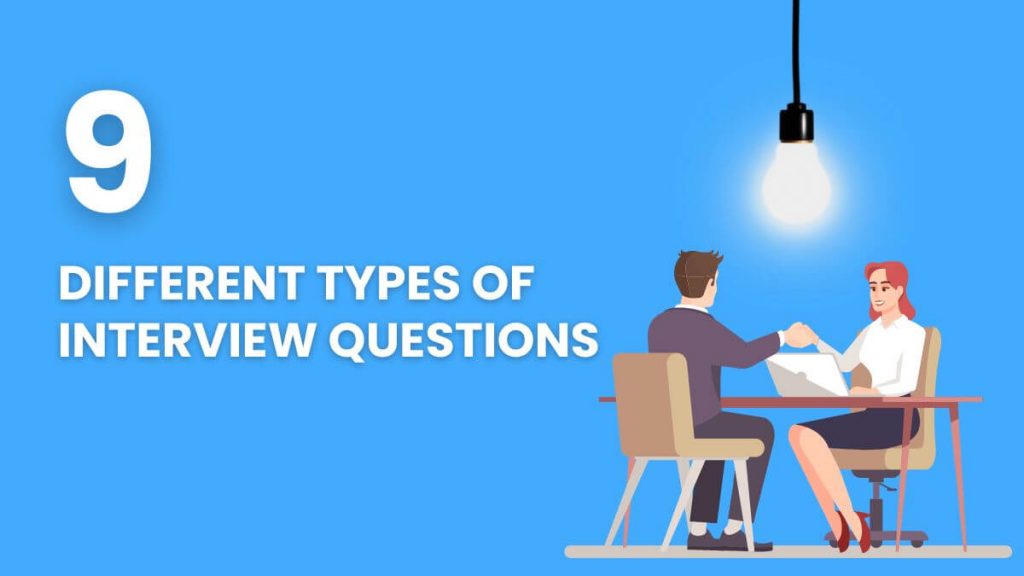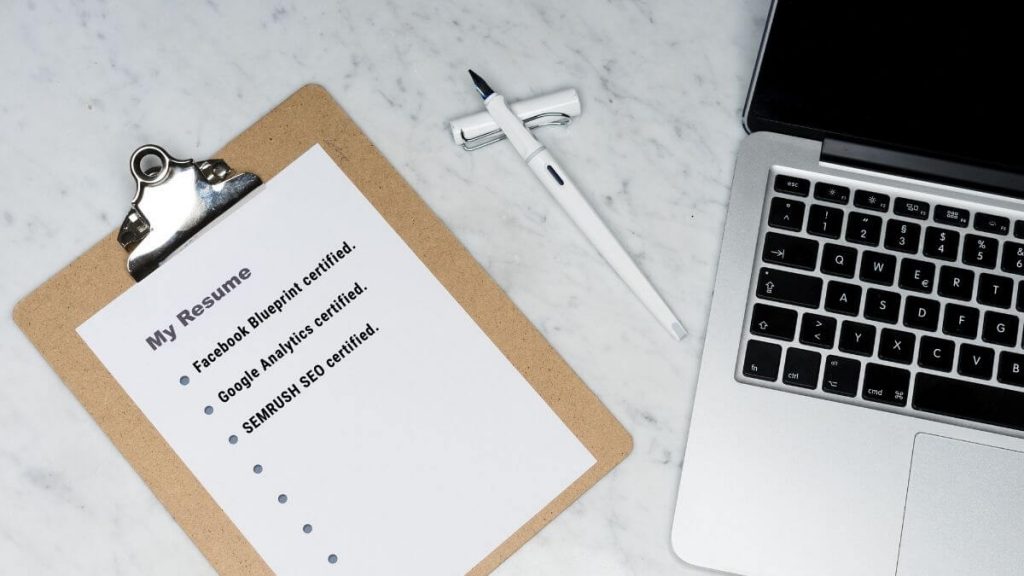Interviews are an essential part of the hiring process, and for job seekers, they can be nerve-wracking and stressful. Employers use interviews to evaluate candidates’ skills, experience, and qualifications to determine whether they are a good fit for the position and the company.
However, not all interview questions are the same, and knowing the different types of questions that employers ask can help candidates prepare better and feel more confident during the interview process. In this blog post, we will explore the various types of interview questions, provide examples, and explain how to answer them effectively.
Whether you are a seasoned job seeker or a recent graduate just starting your career, this guide will provide you with valuable insights and tips to help you ace your next job interview.
Types of Interview Questions

There are several types of interview questions that employers and recruiters use to evaluate candidates during the hiring process. Here are some of the most common types of interview questions, along with examples and explanations:
Behavioral questions
These questions are designed to assess how a candidate has behaved in certain situations in the past, as a way to predict how they may behave in similar situations in the future. Examples of behavioral questions include:
- Tell me about a time when you had to deal with a difficult customer.
- Give me an example of a time when you had to work under pressure to meet a deadline.
Situational questions
These questions are similar to behavioral questions but ask how a candidate would respond in hypothetical situations. These questions are designed to assess a candidate’s problem-solving skills and ability to think on their feet. Examples of situational questions include:
- “How would you handle a situation where a team member was consistently underperforming?”
- “What would you do if a client became unhappy with the service you provided?”
Technical questions
These questions assess a candidate’s knowledge and expertise in a particular area. They are most commonly used for technical or specialized roles, such as engineering or IT. Examples of technical questions include:
Can you walk me through how you would troubleshoot a network connectivity issue?
What experience do you have with SQL databases?
Brainteaser questions
These questions are designed to assess a candidate’s creativity, problem-solving ability, and ability to think outside the box. They are often riddles or puzzles that require some critical thinking to solve. Examples of brainteaser questions include:
- How many golf balls can fit in a school bus?
- How would you weigh an elephant without using a scale?
Open-ended questions
These questions are designed to allow candidates to elaborate on their experience, skills, and qualifications. They are often used to encourage candidates to share more about themselves and their abilities. Examples of open-ended questions include:
- Tell me about yourself.
- What are your greatest strengths and weaknesses?
Traditional questions
These are general questions that most candidates expect to be asked during an interview, such as questions about their work history, qualifications, and motivations for applying. Examples of traditional questions include:
- What attracted you to this position?
- What are your long-term career goals?
- Tell me about yourself.
Opinion Questions
During an interview, a candidate is frequently perplexed by an opinion question. This category includes questions such as “What is your biggest strength?” and “What would you do in case X?” The objective of opinion questions is to examine subjectively how a candidate will react to a set of events.
Although you might want to impress the interviewer by providing the “perfect” response, there is never a single correct response to such queries. Instead, your response would reveal your decision-making skills to the interviewer.
Competency Questions
Competency questions are the most typical sorts of interview questions. These are meant to determine if you possess the requisite skills and experience for the position. Typical examples are “Give me an illustration of your leadership abilities” and “Explain how you found a creative solution to a recent challenge you encountered.”
Hypothetical Interview Questions
Companies utilize hypothetical interview questions to determine how candidates might act on the job. These questions assess your ability to recognize and respond to frequent working scenarios. What would you do if you had to work with an unpleasant coworker?
Your response would provide the hiring manager with insight into your problem-solving style, any preconceived notions you have, your level of interest when posed with the issue, and any follow-up questions you ask.
The benefits of hypothetical questions include allowing you to clarify your basic principles, describing your teamwork abilities, and providing the interviewer with a circumstance in which you made a reasoned decision to overcome hardship.
Overall, employers use a mix of these different types of interview questions to get a comprehensive view of a candidate’s skills, experience, and personality.
In conclusion, understanding the different types of interview questions is essential for job seekers who want to make a great impression during the hiring process. By being familiar with these various types of questions, candidates can better prepare for their interview, anticipate the types of questions they may be asked, and respond effectively to showcase their skills, experience, and qualifications.
Whether it’s behavioral questions, situational questions, technical questions, brainteaser questions, open-ended questions, or traditional questions, each type of interview question requires a unique approach and strategy. Therefore, it is crucial for job seekers to practice and hone their interviewing skills to excel in any job interview. By mastering the various types of interview questions, candidates can increase their chances of landing their dream job and kickstarting their careers.
Check the list of the following interview questions and answers:
Google Analytics Questions & Answers
Top SEO Interview Questions & Answers

13+ Yrs Experienced Career Counsellor & Skill Development Trainer | Educator | Digital & Content Strategist. Helping freshers and graduates make sound career choices through practical consultation. Guest faculty and Digital Marketing trainer working on building a skill development brand in Softspace Solutions. A passionate writer in core technical topics related to career growth.




